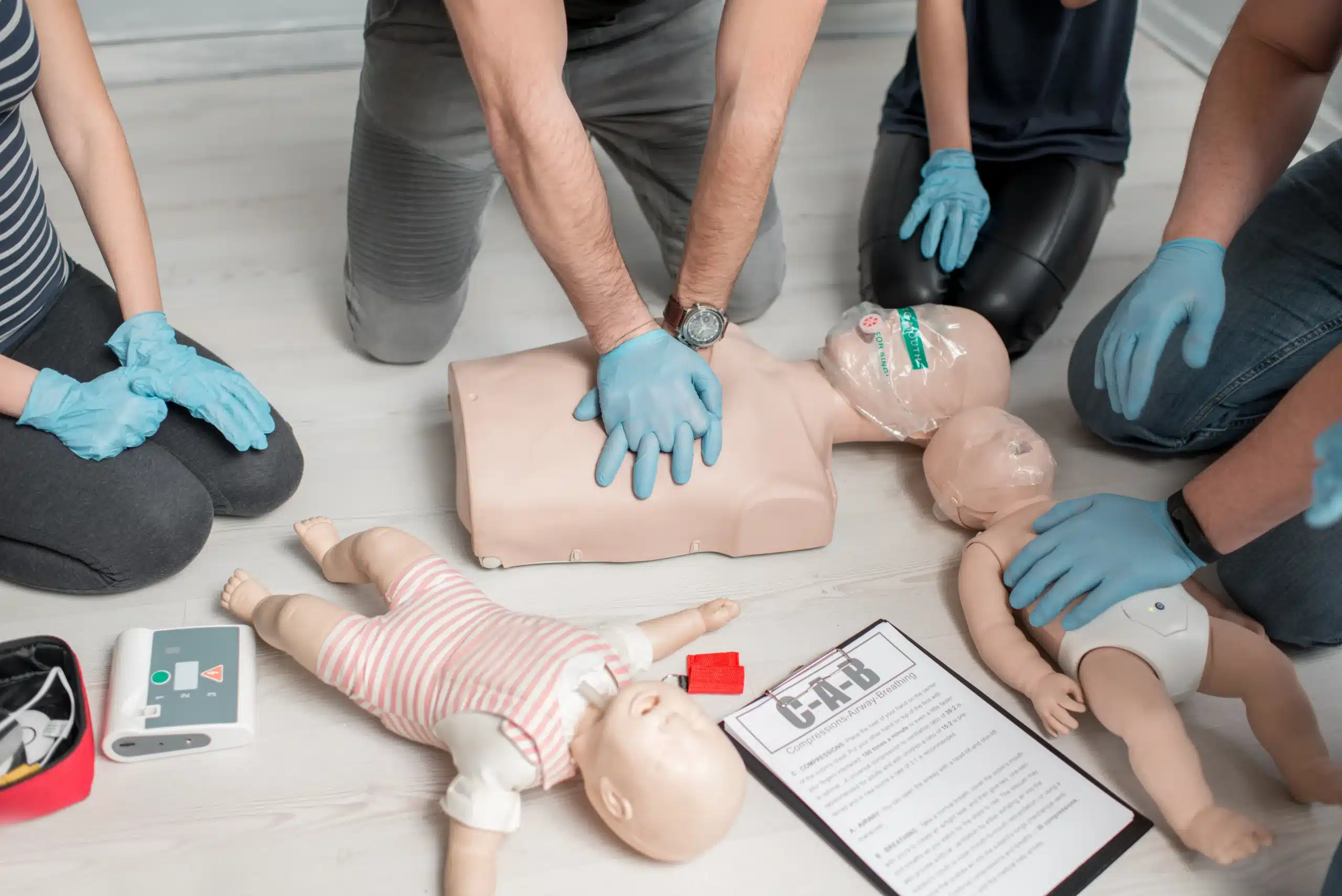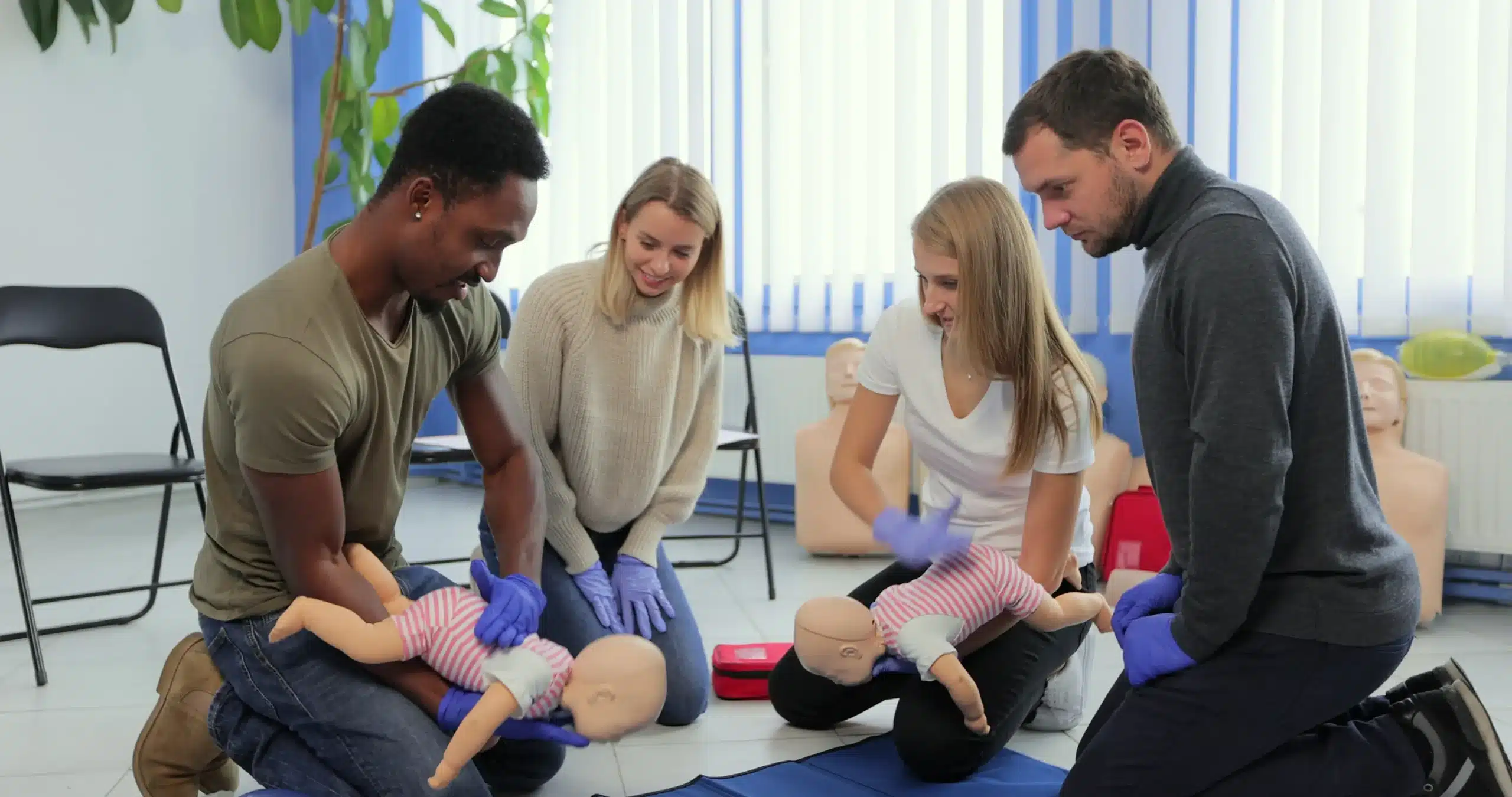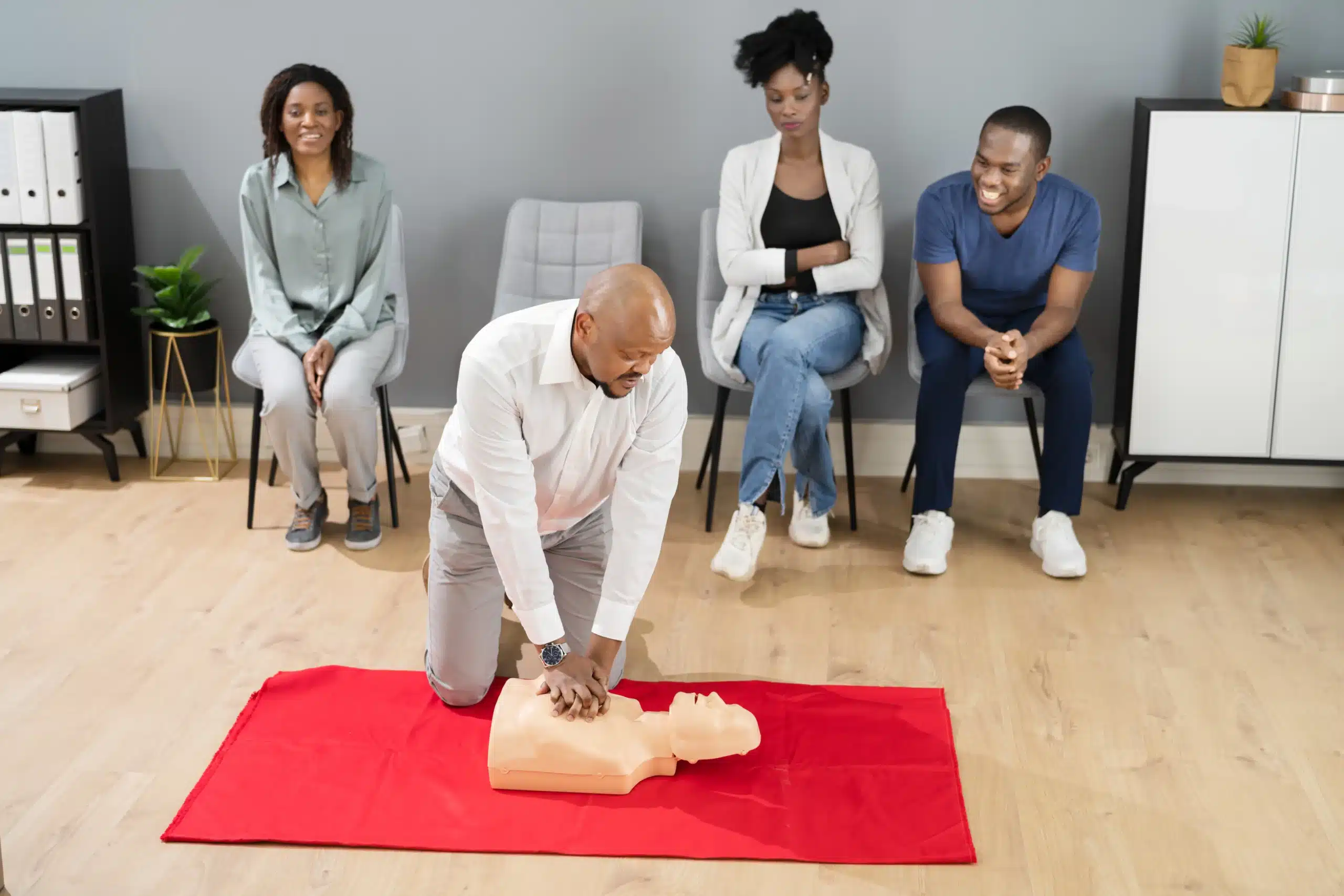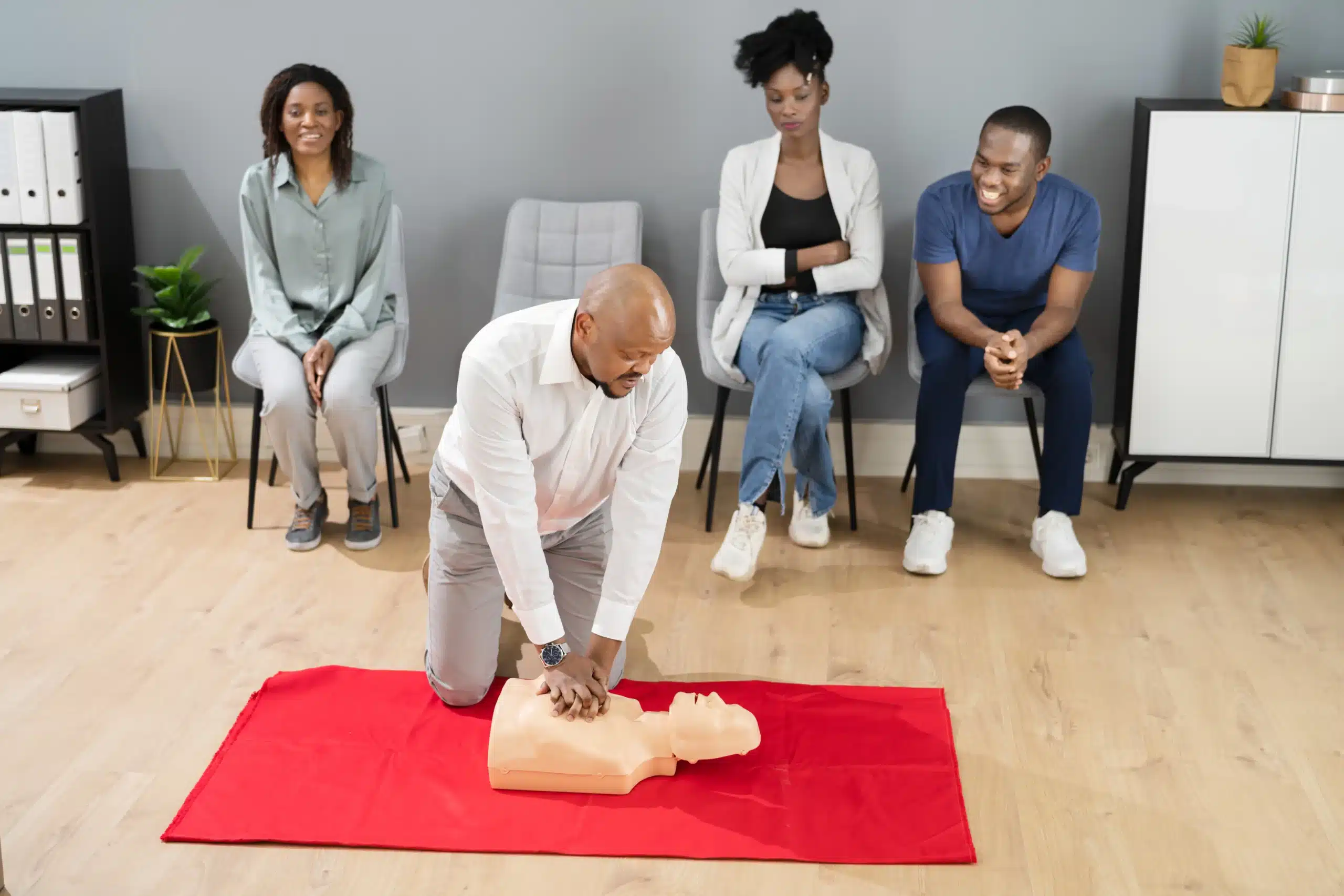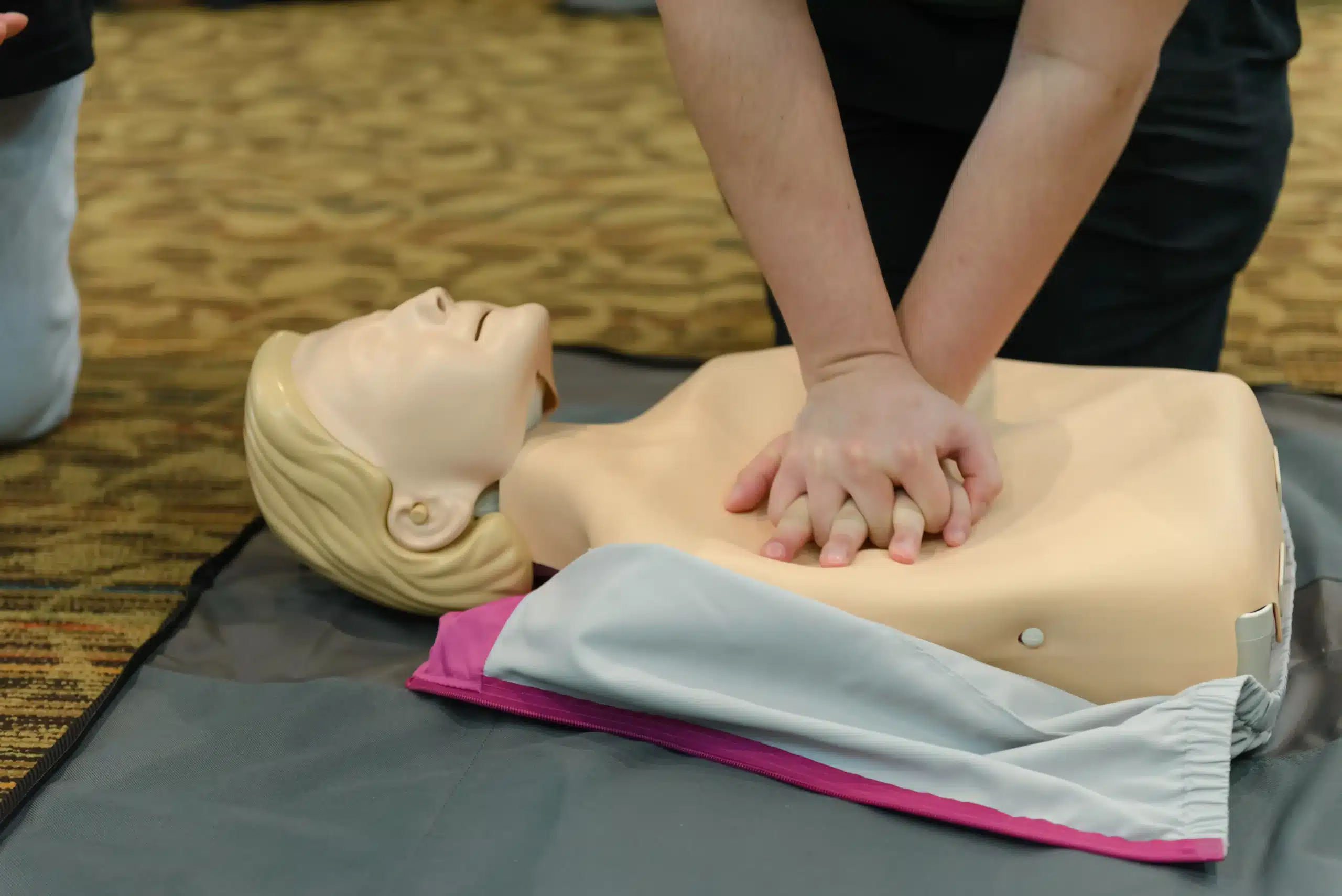Working in healthcare often means balancing patient care with ongoing professional development. PALS HeartCode in SF offers a flexible solution for busy professionals seeking to maintain their certifications. This blended learning approach combines the convenience of online learning with the essential hands-on skills practice needed for real-world scenarios. In this guide, we’ll explore the ins and outs of PALS HeartCode in SF, including course structure, costs, and reputable training centers in the area. We’ll also delve into the benefits of this approach and address common concerns about online learning, providing you with the information you need to make an informed decision.
Key Takeaways
- HeartCode PALS blends online learning with hands-on practice: This flexible format lets you learn at your own pace and then apply your knowledge in a practical skills session.
- The adaptive learning system personalizes your training: The program adjusts to your individual learning style, focusing on areas where you need more practice and ensuring you get the most out of your training.
- HeartCode PALS equips you with essential life-saving skills: You’ll gain the knowledge and confidence to respond effectively to pediatric emergencies, making it a valuable asset for any healthcare provider.
What is HeartCode PALS?
What is HeartCode PALS?
HeartCode PALS is the American Heart Association’s (AHA) blended learning method for Pediatric Advanced Life Support (PALS) certification. This format combines online learning with a hands-on skills session, letting you learn at your own pace before demonstrating your skills. The HeartCode PALS program uses an adaptive algorithm to personalize your learning path. This ensures you focus on the most critical concepts for your current skill level. After completing the online portion, you’ll practice and refine your skills in a hands-on session with an AHA instructor.
Key differences from traditional PALS
A key difference between HeartCode PALS and traditional PALS is the flexible, self-directed online learning. Traditional PALS courses usually involve in-person lectures and demonstrations, while HeartCode PALS allows you to complete the cognitive portion online whenever it’s convenient. The AHA now requires a standardized 4-hour, in-person skills session for all PALS courses—initial or renewal. This consistent skills session ensures everyone gains the same practical experience. While the online portion of HeartCode PALS offers flexibility, the in-person component provides consistent, high-quality training. Another difference is cost; online PALS certification can range from $169 to $275, often making it a more affordable option than traditional classroom-based courses.
HeartCode PALS Course Structure and Content
HeartCode PALS blends online learning with in-person skills practice, offering flexibility and a personalized learning experience. Here’s how it works:
Learn at Your Own Pace Online
The online portion lets you learn at your own speed. The curriculum uses an adaptive learning method that adjusts to your progress, presenting information and questions tailored to your performance and confidence level. This helps you focus on areas needing more practice and breeze through concepts you’ve already mastered. You’ll also work through several advanced eLearning modules.pdf) covering specific pediatric emergencies.
Practice Skills Hands-On
After completing the online modules, you’ll participate in a hands-on skills session. This typically lasts about five hours and provides a chance to apply what you learned online. You’ll practice essential skills, like CPR, using a defibrillator, and working as a team during simulated pediatric emergencies. An authorized PALS instructor will guide you, provide feedback, and answer any questions.
Time Commitment and Flexibility
A major advantage of HeartCode PALS is its flexibility. The online portion allows you to learn whenever and wherever it’s convenient. While the total time for the online modules varies, the blended learning format makes it easier to fit the training into a busy schedule. The hands-on skills session, while a fixed time commitment, is often offered on various dates and times to accommodate different schedules. This blended approach makes HeartCode PALS a practical choice for healthcare professionals juggling work, family, and other commitments.
Find HeartCode PALS Courses in San Francisco
Finding the right HeartCode PALS course in San Francisco depends on your schedule and learning style. Here are a few reputable training centers to explore:
Bay Area CPR
Bay Area CPR offers a blended learning HeartCode PALS course combining online coursework with in-person skills practice. This flexible format lets you learn at your own pace and fit certification into your busy life. They offer classes throughout the Bay Area, including San Francisco, Daly City, San Mateo, and Oakland.
Heart Start CPR
Heart Start CPR provides an AHA PALS Certification course in the San Francisco Bay Area. Their program covers essential pediatric life support skills and knowledge.
Safety Training Seminars
Safety Training Seminars is a woman-owned AHA Training Center offering a variety of AHA courses, including PALS. With convenient daily classes in San Francisco and nearby cities, they are a reliable option for local healthcare providers.
UCSF Kanbar Center
The UCSF Kanbar Center is an AHA Training Center designed for UCSF students, staff, and faculty. They offer BLS, PALS, and ACLS courses, making them a convenient resource for the UCSF community.
Cascade Training
Cascade Training Center offers various AHA resuscitation training courses, including initial and renewal PALS certifications. Serving the greater San Francisco region, they are a good option for healthcare professionals seeking comprehensive training.
HeartCode PALS Costs in San Francisco
Understanding the cost of PALS certification is an important part of planning your training. This section breaks down typical expenses associated with HeartCode PALS certification in San Francisco, including course fees, potential discounts, and the overall value this training provides.
Course Fees and Inclusions
HeartCode PALS certification involves two parts: online coursework and an in-person skills session. This blended learning approach affects the overall cost structure. Providers like Heart Start CPR offer initial PALS certification for $260 and recertification for $190, valid for two years. The UCSF Kanbar Center structures their pricing differently, with a 7-hour online portion priced at $168 and a 4-hour in-person skills session costing $90. This breakdown allows flexibility in scheduling and payment.
Discounts and Promotions
Finding ways to save on training costs is always helpful. Many training centers offer discounts, especially for groups. Heart Start CPR, for example, encourages contacting them directly to discuss options for group training, which may include reduced rates. Checking a provider’s website or reaching out to them directly is always recommended to inquire about potential discounts.
Value for Healthcare Professionals
The value of PALS certification extends far beyond its cost. This training equips healthcare professionals with essential skills to recognize and respond to life-threatening pediatric emergencies. The curriculum emphasizes hands-on training and real-life scenarios, ensuring participants are well-prepared. Bay Area CPR offers a helpful resource discussing common misconceptions about PALS certification, highlighting its importance. Investing in PALS certification is investing in your ability to provide the best possible care for young patients, making it invaluable for any healthcare provider working with infants and children.
Who Needs HeartCode PALS Certification?
Knowing who needs PALS certification is important for both healthcare professionals and individuals working with children. This certification provides crucial training in pediatric advanced life support techniques. Let’s explore the different groups who benefit from this specialized training.
Healthcare Providers and EMS Personnel
HeartCode PALS certification equips healthcare providers and emergency medical services (EMS) personnel with essential skills to respond to life-threatening pediatric emergencies. This training is fundamental for those working in pediatric settings like hospitals or involved in emergency care, where they might encounter respiratory distress, cardiac arrest, or shock in infants and children. PALS certification ensures these professionals can provide timely, effective interventions.
Medical and Nursing Students
Medical and nursing students significantly benefit from HeartCode PALS training as it prepares them for real-world clinical scenarios. PALS courses, often integrated into medical and nursing curricula, provide students with the knowledge and practical skills to manage pediatric emergencies effectively. This early exposure to advanced life support principles builds a strong foundation for their future careers, enabling them to confidently handle critical situations involving young patients. For example, the UCSF Kanbar Center offers PALS courses to their students, house staff, and faculty.
Non-Medical Pediatric Care Professionals
HeartCode PALS certification isn’t limited to medical professionals. It’s also valuable for individuals working with children in non-medical roles, such as daycare providers, teachers, and coaches. While they may not perform advanced medical procedures, understanding pediatric advanced life support enhances their ability to recognize warning signs, provide initial support, and effectively communicate with emergency responders. This knowledge can make a critical difference during emergencies, bridging the gap until professional medical help arrives. For more information, check out this article on common PALS misconceptions.
HeartCode PALS Benefits and Features
HeartCode PALS offers several advantages for healthcare providers seeking pediatric advanced life support certification. The blended learning format combines online instruction with hands-on skills practice, creating a flexible and efficient learning experience. Let’s explore some key benefits:
Adaptive Learning
HeartCode PALS uses an adaptive learning algorithm, meaning the program adjusts to your individual learning pace and style. By assessing your performance and confidence level on practice questions, the program creates a personalized learning path. This helps you focus on areas where you need more practice and breeze through concepts you’ve already mastered. This personalized approach makes your learning experience more efficient and effective. Learn more about the PALS course options from the American Heart Association.
Immediate Certification, Two-Year Validity
You receive your PALS certification card the same day you successfully complete both the online portion and the in-person skills session. This certification, like other PALS certifications, remains valid for two years. This immediate certification is a significant benefit for those who need to quickly meet job requirements or renew their credentials.
Comprehensive Curriculum, Team Dynamics Focus
The HeartCode PALS course covers a comprehensive curriculum designed to equip healthcare providers with the knowledge and skills to manage pediatric emergencies effectively. The course emphasizes high-performance team dynamics, recognizing that effective teamwork is crucial in emergencies. You’ll learn to collaborate with other healthcare professionals to provide optimal care for pediatric patients. The curriculum also focuses on developing high-quality individual skills, ensuring you can confidently perform essential life-saving procedures.
Continuing Education Credits
Many healthcare professionals require continuing education credits to maintain their licenses and certifications. HeartCode PALS offers continuing education credits upon successful completion of the online portion. These credits can help you meet your professional development requirements and stay up-to-date in your field.
Prepare for Your HeartCode PALS Course
Getting ready for your HeartCode PALS course involves a few key steps to ensure you’re set up for success. This blended learning approach combines online coursework with a hands-on skills session, so preparing for both aspects is essential.
Maximize Online Learning
The online portion of the HeartCode PALS course allows you to learn at your own pace. The PALS course uses an adaptive learning algorithm, meaning it adjusts to your learning style and knowledge as you progress. Answer questions and share your confidence levels throughout the modules, and the program will tailor the content to focus on areas where you need more practice. This personalized approach helps you learn efficiently and master the material effectively.
Get Ready for the Skills Session
After completing the online modules, you’ll participate in the in-person skills session. This is where you’ll put your knowledge into action, practicing essential skills like CPR, using a bag-mask device, and running through simulated pediatric emergency scenarios. Review the online materials beforehand to refresh your memory and come prepared with any questions for your instructor.
Overcome Challenges
Some people feel apprehensive about online learning, wondering if it’s as effective as traditional classroom instruction. The HeartCode PALS course is designed to be just as comprehensive as in-person training. The blended learning format combines the flexibility of online learning with the hands-on practice necessary for real-world application. If you have any concerns about the online portion, the skills session provides an opportunity to solidify your learning and ask your instructor any lingering questions.
Get Support During Your Course
Learning new skills can be challenging, so it’s reassuring to know you have support throughout your HeartCode PALS journey. From personalized learning features to instructor guidance and readily available resources, you’ll have the tools you need to succeed.
Personalized Learning
HeartCode PALS uses an adaptive learning approach to tailor the online portion to your individual needs. The program adjusts based on your answers and self-reported confidence levels, creating a unique learning path. This means you’ll spend more time on areas where you need extra practice and less time on concepts you’ve already mastered. This personalized approach helps you learn efficiently and effectively.
Instructor Guidance and Feedback
While the online portion offers flexibility, the hands-on skills session provides essential interaction with a certified American Heart Association instructor. You’ll practice your skills and receive immediate feedback, ensuring you’re performing them correctly. This personalized instruction is invaluable for building confidence and mastering the practical application of PALS techniques. The skills session typically lasts around five hours, including breaks.
Access Digital Materials and PALS Manual
You’ll also have access to essential digital resources, including the PALS Provider Manual and the AHA Guidelines for CPR and ECC. These materials are available online, allowing you to review key concepts and refresh your knowledge whenever needed. Having these resources readily available reinforces your learning and provides a handy reference point throughout your training.
Continue Learning After Certification
After earning your PALS certification, continued learning is key to maintaining proficiency in pediatric advanced life support. This ongoing development helps you refine your skills and stay up-to-date with the latest advancements in the field.
Enhance Your Skills
The HeartCode PALS program offers several resources to help you build on your initial training. The personalized adaptive learning algorithm creates a unique learning path tailored to your individual needs, adjusting based on your performance and confidence level. This ensures you focus on areas where you need the most practice. Beyond the course itself, access to valuable resources like the online PALS Provider Manual and the AHA Guidelines for CPR and ECC provides opportunities for ongoing learning and skill development. These digital resources offer a convenient way to refresh your knowledge and stay sharp.
Maintain and Recertify
Your PALS certification is valid for two years. To maintain your credentials and ensure you’re providing the highest quality of care, recertification is essential. The American Heart Association requires all healthcare providers seeking recertification to complete the four-hour in-person skills session. Many providers offer continuing education credits upon successful completion of the HeartCode PALS program, allowing you to further your professional development while maintaining your certification.
Address HeartCode PALS Concerns
It’s normal to have questions about a new learning format, especially when it comes to something as important as PALS certification. This section addresses some common concerns about the HeartCode PALS blended learning program.
Blended Learning Effectiveness
One frequent concern is whether online PALS certification is as effective as in-person training. The HeartCode PALS program is designed to be just as effective. The curriculum covers the same comprehensive material as traditional courses, ensuring you gain the knowledge and skills needed to provide high-quality pediatric care. The personalized adaptive algorithm creates a learning path tailored to your individual needs, focusing your learning experience and helping you master the material efficiently.
Balance Training with Work
Many healthcare professionals juggle busy schedules, making it difficult to find time for training. The blended learning format of HeartCode PALS offers the flexibility to complete the online portion at your own pace. Similar to HeartCode BLS, you can study whenever and wherever it’s convenient, fitting the training around your work and personal commitments. While the online portion is self-paced, the total time for completion varies based on experience. The American Heart Association notes this personalized timeline is a key feature of the adaptive learning format.
Online Technical Support
Technical issues can be frustrating, but the HeartCode PALS program offers support. Contact the American Heart Association’s customer service with any questions. You have two years of access to all course materials after activating your course key, giving you ample time to review and reinforce your learning.
Frequently Asked Questions
Is HeartCode PALS as good as a traditional PALS course? Absolutely! HeartCode PALS covers the same material and uses the same American Heart Association standards as a traditional course. The blended learning format combines online learning with a required in-person skills session, ensuring you get both the knowledge and the hands-on practice you need.
How long does it take to complete the HeartCode PALS course? The online portion is self-paced, so the time varies depending on your learning style and how quickly you move through the modules. The in-person skills session typically lasts about four hours.
Where can I find HeartCode PALS courses in the San Francisco Bay Area? Several reputable organizations offer HeartCode PALS in the Bay Area, including Bay Area CPR, plus others mentioned in the blog post. Check their websites for schedules and locations.
How much does HeartCode PALS certification cost? The cost varies depending on the provider, but it’s generally comparable to traditional PALS courses. Some providers offer discounts for groups, so it’s always worth asking. Remember, the cost covers both the online modules and the in-person skills session.
What if I have technical problems with the online portion of HeartCode PALS? The American Heart Association provides technical support for the HeartCode platform. Contact their customer service, and they can help you troubleshoot any issues.

